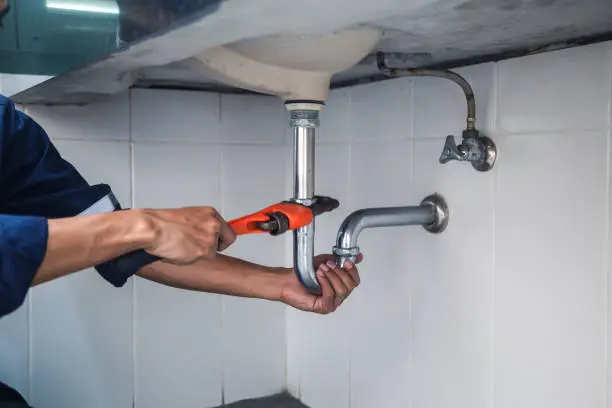Common Causes of Drain Leaks: Prevention and Solutions

Drain leaks can be a nuisance, causing water damage, mold growth, and unpleasant odors in your home. Addressing drain leaks promptly is crucial to prevent further damage and costly repairs. In this comprehensive guide, we'll explore the common causes of drain leaks and effective prevention and solutions to keep your plumbing system in top condition.
Understanding Drain Leaks
Drain leaks occur when there is a break or damage in the plumbing system that allows water to escape. These leaks can occur in various parts of the drainage system, including sinks, showers, bathtubs, and toilets. Identifying the cause of the drain leaks are essential for implementing the appropriate solution and preventing future occurrences.
Common Causes of Drain Leaks
Corrosion: Over time, metal pipes can corrode due to exposure to water and other corrosive substances. Corrosion weakens the pipe walls, leading to cracks and leaks. Rusty pipes are especially vulnerable to leaks and may require replacement to prevent further damage.
Aging Pipes: As plumbing systems age, pipes may deteriorate, leading to leaks. Older homes with outdated plumbing systems are more susceptible to pipe leaks. Inspecting and replacing aging pipes can help prevent drain leaks and ensure the integrity of the plumbing system.
Clogs: Accumulation of debris, grease, and other substances can cause clogs in drains, leading to leaks. Clogs put pressure on the pipes, causing them to crack or burst. Regular drain cleaning and maintenance are essential for preventing clogs and subsequent leaks.
Loose Connections: Loose or improperly connected pipe joints and fittings can cause leaks. Over time, connections may become loose due to normal wear and tear or improper installation. Signs your drain needs expert attention include water stains, mold growth, and musty odors around pipes and fittings. Tightening loose connections or replacing damaged fittings can resolve the issue and prevent leaks.
High Water Pressure: Excessive water pressure can put strain on pipes, causing them to develop leaks over time. Installing a pressure regulator can help maintain optimal water pressure and prevent damage to the plumbing system.
Tree Roots: Tree roots seeking water sources can infiltrate underground pipes, causing them to crack and leak. Regular inspection of outdoor pipes and tree maintenance can help prevent root intrusion and minimize the risk of drain leaks.
Temperature Changes: Extreme temperature fluctuations can cause pipes to expand and contract, leading to cracks and leaks. Insulating exposed pipes and maintaining a consistent indoor temperature can help prevent damage from temperature changes.
Prevention and Solutions
Regular Maintenance: Schedule routine inspections and maintenance for your plumbing system to detect and address potential issues before they escalate into major problems. Professional plumbers can identify leaks early and recommend appropriate solutions.
Drain Cleaning: Keep drains clear of debris and buildup by regularly cleaning them with a drain snake or environmentally friendly drain cleaner. These slow drain problems can be so dangerous. Avoid pouring grease, oil, and other substances down drains to prevent clogs.
Pipe Insulation: Insulate exposed pipes, especially those in unheated areas, to protect them from freezing temperatures and reduce the risk of leaks. Pipe insulation also helps conserve energy by preventing heat loss from hot water pipes.
Proper Installation: Ensure that pipes, fittings, and connections are installed correctly to prevent leaks. Hiring a qualified plumber for installation and repairs can help avoid common plumbing issues caused by improper installation.
Tree Maintenance: Trim trees and shrubs near underground pipes to prevent root intrusion. Installing root barriers and regularly inspecting outdoor pipes can help minimize the risk of tree root damage.
Pressure Regulation: Install a pressure regulator to maintain optimal water pressure and prevent damage to pipes. High water pressure can strain pipes and increase the likelihood of leaks, so it's essential to keep pressure levels within recommended limits.
Conclusion
Drain leaks can cause significant damage to your home if left untreated. By understanding the common causes of drain leaks and implementing preventive measures, you can protect your plumbing system and avoid costly repairs. Regular maintenance, proper installation, and prompt repairs are key to keeping your drains leak-free and your home safe and comfortable. Take proactive steps to address drain leaks to ensure the long-term integrity of your plumbing system.